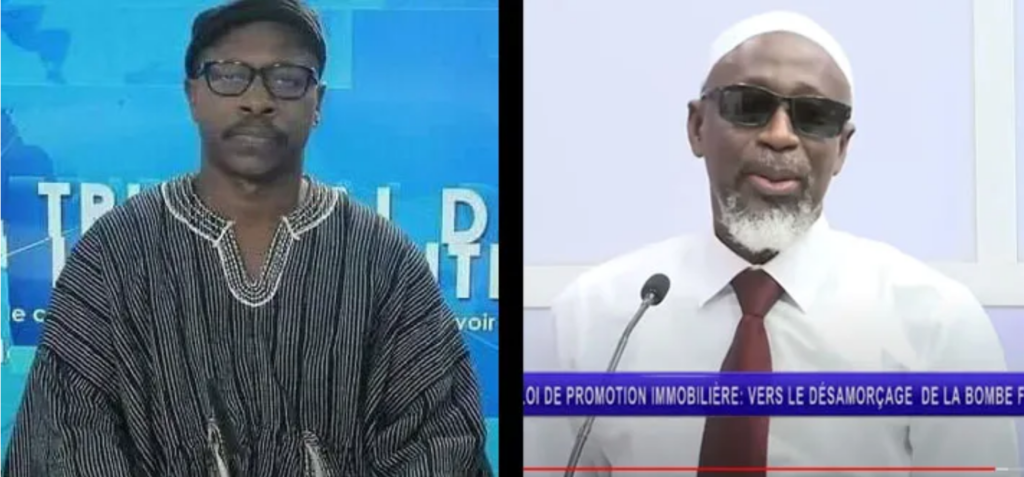Burkinabe authorities must revoke the military conscription of journalists Issaka Lingani and Yacouba Ladji Bama and ensure the safety of journalist Boureima Ouedraogo in the face of kidnap threats, the Committee to Protect Journalists (CPJ) said.
In early November, the army ordered Lingani and Bama to report for military training and then join its security operations in the northwest, the two journalists told CPJ, which also reviewed a copy of Lingani’s conscription order.
Lingani, director of the privately owned newspaper L’Opinion, and Bama, an investigative reporter and director of the privately owned news website BamYinga, have both criticized Burkinabe authorities in their recent reporting.
“Burkinabe authorities should allow journalists Yacouba Ladji Bama and Issaka Lingani to work freely and to inform the public about what is happening in Burkina Faso, not force them to join the army,” said Angela Quintal, CPJ’s Africa program coordinator in Johannesburg. “Efforts to respond to insecurity in Burkina Faso must include ensuring the safety of journalists, rather than be used as opportunities to censor the press.”
The West African nation of Burkina Faso is ruled by the military which, like other governments in the region, are fighting jihadist insurgents. marking Burkina Faso’s second military takeover in eight months—and it is fighting to regain territory from Islamist militants.
A dozen journalists, civil society activists, and opposition politicians received conscription orders this month under an emergency general mobilization law passed on April 13, according to rights groups.
Conscription laws should be applied in a non-discriminatory manner, rather than targeting individuals who criticize the junta, the groups said. Anesthesiologist Arouna Loure is among those drafted, after posting critical comments on Facebook about the military’s response to the insurgency.
Lingani told CPJ that he believed he was ordered to fight because of his reporting and had gone into hiding. Bama, who was abroad when the order was issued, said he believed the order was an attempt to prevent him from continuing to publish.
Lingani has appeared as a commentator and criticized the government on “Presse Échos,” a political analysis program on the privately owned BFI TV channel. Bama has consistently criticized the authorities on his Facebook page, which has over 30,000 followers.
For years, Bama has faced threats in connection with his reporting. Recently, these have included messages on social media calling for his for his arrest, which CPJ reviewed. Other messages threatened to kill him, he said.
On November 7, a group of lawyers appealed the conscription of the two journalists and five members of civil society and accused authorities of “abuse of power,” according to CPJ’s review of the lawyers’ press release and media reports. One of the lawyers, Olivier Yelkouni, told CPJ that a court date had not been set for the appeal.
On November 20, an administrative court in the capital, Ouagadougou, rejected a separate request by the lawyers for the suspension of conscription orders of four men, including Lingani, according to Yelkouni, Lingani, and news reports. The lawyers have appealed the ruling and are awaiting a court date, Lingani said.
Separately, on October 19, a Ouagadougou court convicted Boureima Ouedraogo, publishing director of the privately owned newspaper Le Reporter, and Aimé Kobo Nabaloum, its editor-in-chief, of defamation and ordered them to jointly pay 2 million West African CFA francs (US$3,258) in damages to Burkina Faso’s Minister of Economy and Finance Aboubakar Nacanabo, Director General of Customs Mathias Kadiogo, and Director of Taxes Daouda Kirakoya for a June article on mismanagement, according to news reports.
On October 26, pro-government Facebook pages published posts accusing Ouedraogo of being behind a Facebook page called Henri Sebgo, which has criticized the military, and of attempting to destabilize the government.
CPJ also reviewed an audio message circulated on WhatsApp accusing Ouedraogo of the same thing. Ouedraogo told CPJ that the Facebook posts and audio message caused him to fear for his safety and that sources had warned him that he may be kidnapped. CPJ’s calls to the Ministry of Defense and government spokesperson Jean Emmanuel Ouedraogo, did not receive any replies.



